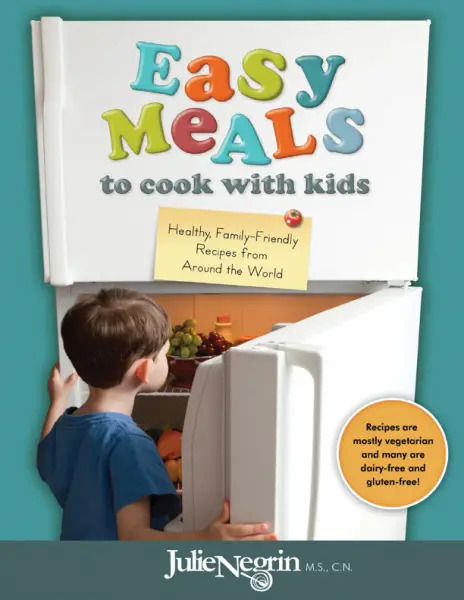How do you know when a recipe is worth making? Online, you have millions of recipes at your fingertips, but they’re not all winners. Here are 6 tips for choosing a recipe, including what to look for in a good recipe and how to know when a recipe is not worth trying.

Recently, I was the substitute teacher for two college-level cooking classes combined with nutrition lectures. In the kitchen, some of my students hesitantly approached me to ask basic cooking questions, and I had to assure them that no question was too trivial. It’s difficult to learn how to cook from a piece of paper. And it’s even more challenging for a novice cook to be able to tell if a recipe is even worth making.
I’ve noticed that, since the explosion of cookbooks and recipes on the Internet, it’s not always easy to find a truly well-tested recipe that turns out right. More accomplished cooks are able to adjust a vague recipe, but new cooks just end up thinking they are terrible cooks—which I often hear about in class.
I’m the first to admit that it isn’t easy to write a recipe. I often end up editing the same recipe every time I teach it over the span of several years. I’m a pretty detailed-oriented person, but I still find it challenging to write a recipe that is clear and gives enough information to be able to follow it with confidence but not too much information that it feels overwhelming.
The good news it that I have collected a few tips on how to quickly review a recipe to see if it’s in fact worth making. These days, no one has the time or money to prepare a dish that doesn’t turn out well. I’m probably missing a few things here (inevitably) and will up editing this list several times, but here it goes:
1. Determine the source. There are some authors who always write solid recipes—the kind of recipes that you can cook for a dinner party even if you’ve never made it before (although this is not recommend for brand-new cooks). I’ve made a list that I rely on for guaranteed winners (see below). Please note that there are many, many other accomplished cookbook authors that could also be listed, but I can’t fit everyone!
2. Review the ingredients list and instructions. Are the ingredients in the order that they are mentioned in the instructions? Is there enough information so that you won’t be confused at the store (“4 – 6 oz. salmon fillets, skin on” versus “4 salmon fillets”) or when you are preparing the dish (“3 medium yellow onions, diced into ¼-inch squares” versus “3 onions, diced”)? A well-written recipe that has been tested several times will give you very specific information.
3. Details mean someone took the time to really test it. Does the author give you a preparation time and serving size? Does the time suggested look appropriate to the length of instructions? If the suggested prep time looks too short for the recipe length, I’m immediately skeptical about the entire dish. I’m also wary of recipes that don’t mention salt (preferably kosher or sea salt) or a salt alternative like soy sauce or miso. Salt is an important ingredient for almost every dish—even baked goods—and makes all of the flavors “pop.” (I also like seeing “freshly ground pepper”—I can’t live without it.)
4. Does the author give some background information or ideas on how to alter it? Extra information like this means that the author has made it several times and knows the dish well enough to offer you substitutions or alternate ways of preparing it.
5. You should be able to visualize it. Does the author recommend which kind of pan to use? The amount of heat? A detailed explanation on when to move to the next step? Ideally, you should be able to read the recipe and visualize each step and the equipment you’ll need, even if you aren’t an experienced cook.
6. And finally, does it make your mouth water? Or do you look at the combination of ingredients and feel doubtful? I’ve heard stories from many students who said they thought a recipe looked “kinda weird” but made it anyway, and they ended up being disappointed. Trust your instincts—they are your best asset in the kitchen besides your taste buds and sense of smell.
My Top-10 of Sure-Fire Cookbook Authors
1. Martha Stewart
2. Mark Bittman
3. Julia Child
4. Mollie Katzen
5. Deborah Madison
6. Alice Waters
7. Tom Colicchio (I love his older Think Like a Chef cookbook)
8. Ina Garten (aka the Barefoot Contessa; again, love her older stuff)
9. Anything published by Cooks Illustrated or Eating Well magazine
10. Two chefs I’ve had the pleasure of working with also write fantastic recipes and I love their cookbooks: Myra Kornfeld and Peter Berley
 Julie Negrin, M.S., is a certified nutritionist, cooking instructor, and author of Easy Meals to Cook with Kids. She has been teaching children how to cook for 14 years and spent five years as the director of culinary arts at the JCC in Manhattan. She has appeared on Sesame Street, CBS Nightly News with Katie Couric, and the Today Show with Al Roker. The above article was excerpted from her “My Kitchen Nutrition” blog at julienegrin.com.
Julie Negrin, M.S., is a certified nutritionist, cooking instructor, and author of Easy Meals to Cook with Kids. She has been teaching children how to cook for 14 years and spent five years as the director of culinary arts at the JCC in Manhattan. She has appeared on Sesame Street, CBS Nightly News with Katie Couric, and the Today Show with Al Roker. The above article was excerpted from her “My Kitchen Nutrition” blog at julienegrin.com.
Also By Julie Negrin:
How to Get Kids to Try New Foods


















